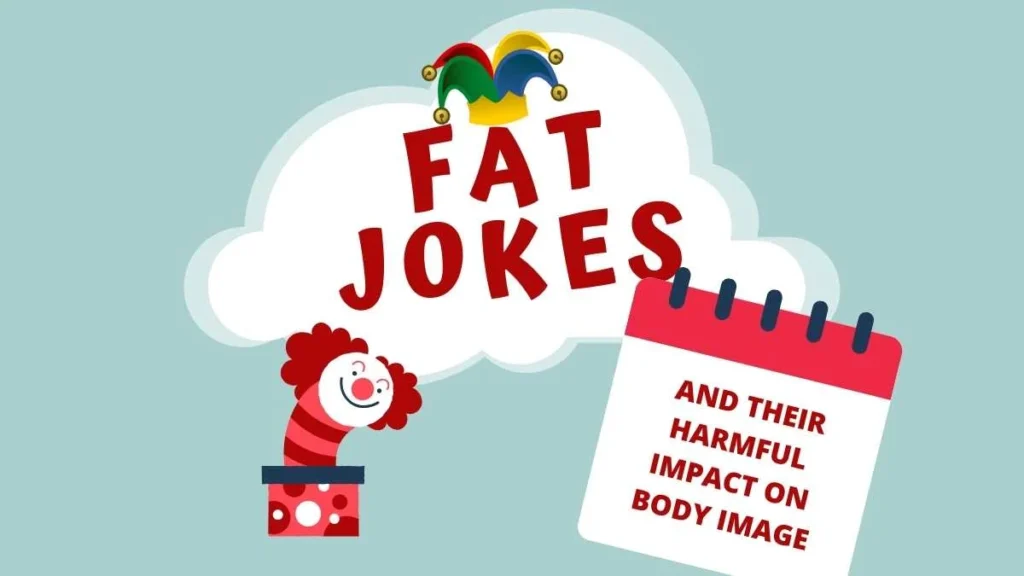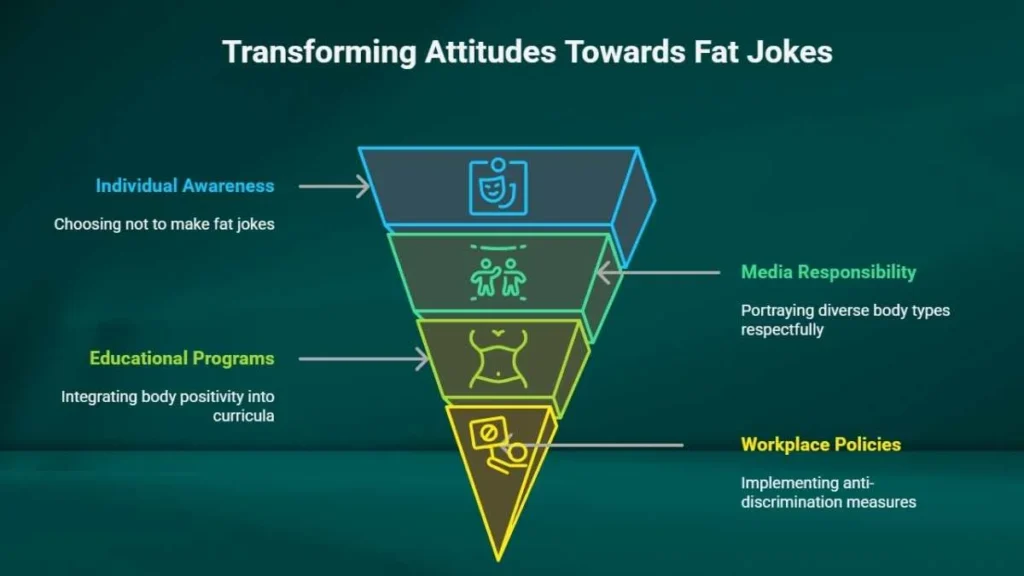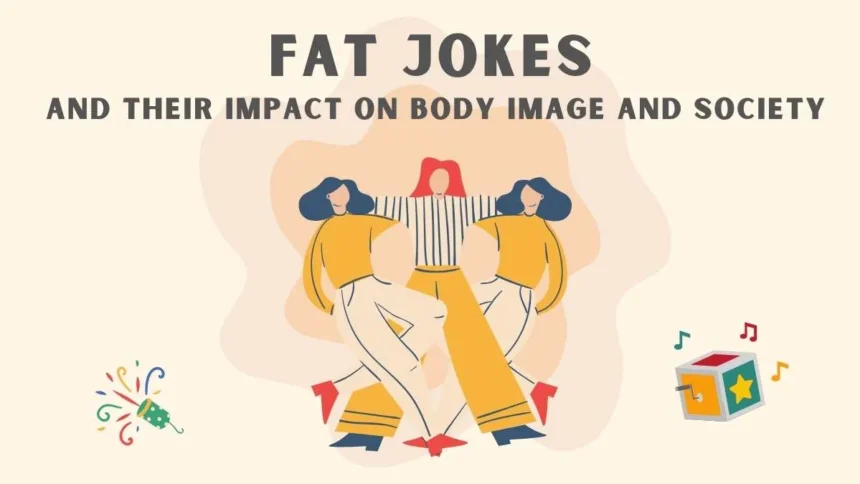Fat jokes are jokes or remarks that target a person’s weight or body size. They often exaggerate stereotypes, portraying overweight individuals as lazy, unhealthy, or lacking discipline. While some people excuse them as lighthearted fun, they are widely regarded as offensive because they damage confidence, encourage bullying, and reinforce toxic societal beliefs.
- How Weight-Based Humor Took Root
- Why This Humor Hurts
- Comparing Myths and Realities of Fat Jokes
- The Cultural Impact of Body-Shaming Humor
- Why People Laugh at Body-Shaming Humor
- Consequences Beyond Laughter
- Moving Toward Respectful and Inclusive Humor
- Building a Culture Free from Fat Jokes
- Social Media’s Dual Role
- FAQs
- Conclusion
So, what is the real issue with fat jokes? They are not harmless humor. Instead, they act as a form of body-shaming humor that contributes to discrimination, low self-esteem, and negative body image. In this article, we’ll explore how weight-based teasing affects individuals and communities, why it persists, and how society can move toward humor that uplifts instead of harms.
How Weight-Based Humor Took Root
Humor targeting body size is deeply embedded in media and cultural norms. For decades, films and sitcoms have used “fat characters” as comic relief, portraying them as clumsy or undesirable rather than strong or successful. Advertisements have reinforced thinness as a standard of beauty, marginalizing larger bodies.
This constant exposure has normalized weight-based teasing, making fat jokes seem acceptable even though they perpetuate harmful body image stereotypes.

Why This Humor Hurts
1. Mental Health Struggles
- Low self-esteem and confidence
- Greater risk of depression and anxiety
- Negative relationship with body image
2. Bullying and Exclusion
Jokes about weight often open the door to harassment in schools, workplaces, and online communities.
3. Reinforcing False Stereotypes
Weight is shaped by genetics, environment, and health, not laziness or lack of control. Yet, offensive jokes reinforce these inaccurate beliefs.
Comparing Myths and Realities of Fat Jokes
| Common Stereotype | Reality |
| Overweight people are lazy | Body size is influenced by biology, stress, and socioeconomic factors. |
| Shaming motivates weight loss | Body-shaming humor worsens stress and discourages healthy habits. |
| Fat jokes are harmless | They harm self-esteem and normalize bullying and discrimination. |
| Larger bodies are unhealthy | Health cannot be judged solely by weight or appearance. |
The Cultural Impact of Body-Shaming Humor
The prevalence of fat jokes reflects a broader culture of weight stigma, one that extends far beyond individual interactions and is deeply embedded in media, fashion, and healthcare. In entertainment, larger-bodied characters are often reduced to comic relief rather than being portrayed as complex individuals, while the fashion industry has historically excluded plus-size consumers, reinforcing the message that only certain bodies deserve visibility. Healthcare settings also reflect this bias, with many patients reporting that their concerns are dismissed or misdiagnosed because providers attribute every issue to weight.
When society laughs at fat jokes, it not only normalizes these biases but also strengthens the structural inequalities that make it harder to achieve true inclusivity.
Why People Laugh at Body-Shaming Humor
Humor psychologists explain that fat jokes often rely on:
- Superiority: Making people feel better by putting others down.
- Relief: Allowing taboo issues to be laughed off.
- Group bonding: Excluding one individual to create unity in others.
While this explains their appeal, it doesn’t justify them. Laughter built on exclusion causes long-lasting harm.
Consequences Beyond Laughter
Weight-related humor has measurable consequences:
- In workplaces, overweight employees face lower pay and fewer promotions.
- In schools, students who are mocked for size avoid social and academic opportunities.
- In healthcare, patients delay medical visits for fear of being shamed.
Clearly, fat jokes are not just “banter”; they shape real-world inequalities.
Moving Toward Respectful and Inclusive Humor
Humor does not have to come at the expense of marginalized groups, and there are many ways to be funny without reinforcing harmful stereotypes. Instead of mocking someone’s appearance, comedy can shift its target toward shared human experiences, everyday contradictions, or even playful self-reflection. Satire, when used responsibly, can be a powerful tool to critique harmful systems rather than vulnerable individuals, allowing audiences to laugh while also thinking critically. Above all, empathy should guide humor; before delivering a joke, one should consider how it might feel if the same remark were directed at themselves or someone they care about.
Building a Culture Free from Fat Jokes
Changing the culture around fat jokes requires effort at multiple levels:
- Individual Awareness: People can choose not to make fat jokes and can speak up when others do.
- Media Responsibility: Producers and writers should portray diverse body types in nuanced, respectful ways rather than relying on lazy stereotypes.
- Educational Programs: Schools can integrate body positivity and anti-bullying campaigns into their curriculum to promote healthier environments for young people.
- Workplace Policies: Employers can implement anti-discrimination policies that explicitly address weight-based harassment.

Social Media’s Dual Role
Platforms amplify both harmful memes and positive change. While weight-based humor circulates rapidly, so do movements like #BodyPositivity and #HealthAtEverySize. Individuals can disrupt harmful trends by refusing to share discriminatory humor and amplifying inclusive content.
FAQs
Q1: Are fat jokes considered a form of bullying?
Yes, repeated fat jokes can escalate into bullying, especially in schools or workplaces.
Q2: Can fat jokes affect children differently than adults?
Children are more vulnerable, as body-shaming humor impacts self-image during formative years.
Q3: Is laughing at fat jokes harmful even if you’re not the target?
Yes, it reinforces discriminatory humor and normalizes exclusionary behavior.
Conclusion
Fat jokes are not just humor; they are tools of exclusion. They damage mental health, promote stereotypes, and contribute to discrimination in schools, workplaces, and healthcare.
True comedy uplifts and unites. By rejecting fat jokes and promoting respectful humor, we can replace cruelty with connection, creating a culture where everybody is valued and laughter heals rather than harms.








